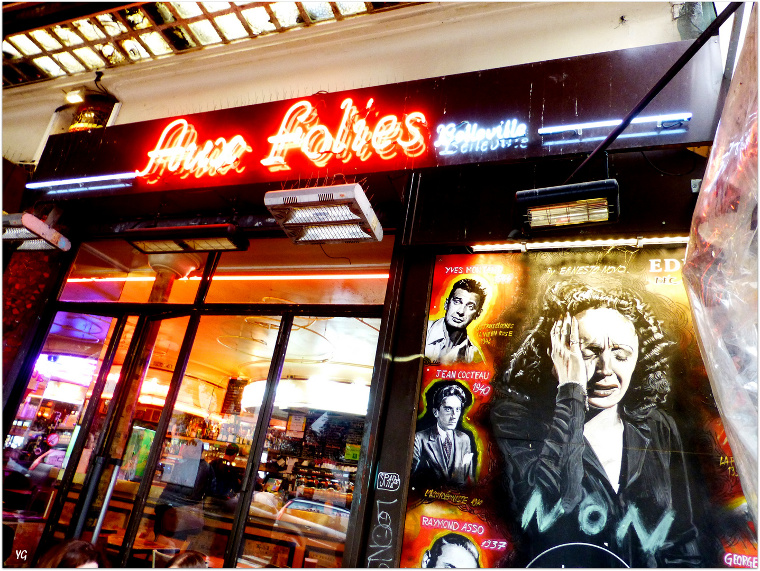Piaf the Little sparrow on the hill

Aux Folies, where Piaf did her debuts
But few knows that Belleville, the place where she was born, and saw here at her debuts, shaped her personnality, the style and the subjects of her songs. Born on the stairs of a building (as the legend goes), at 72 rue de Belleville, as the daughter of a street performer and a bar singer, she grew up in misery, raised up alternatively by her grand mother, who was running a whores house, and her father who took her with him to sing in the streets of Belleville. Mother had gone, unable to raise the children. There, in Belleville, she started to sing on her own, with a friend, on the street, eventually in some bars and cafés where she would pour the wine for customers, sing and sometimes behave more than just as a singer with them. At that time, Belleville, the working-class district, with its cabarets and bars where poor workers and craftsmen had fun at a cheap price, was her working place. The café “Aux Folies”, quite trendy nowadays, with its nice 30’s decoration, saw her early performances at the age of fifteen. The place was then a café concert and a dancing hall known as “bal des folies de Belleville”.
The young Piaf
After those early performances, she could sing in a cabaret on the Champs-Elysées, whose owner gave her nickname: ‘Piaf’, the sparrow in French. This owner was later on found dead on his bed, killed by a gang. Piaf, who knew the murderers, had to go on the trial to testify. This sacked her growing reputation and threatened to bring her back to her miserable former life. But the success was ongoing, her unique voice was known, played at radio Paris, the great broadcasting station of that time. She then met the musician Marguerite Monod, who will accompagn her for the rest of her career and will write her greatest hits such as “Mon légionnaire”, “Milord”, and “l’hymne à l’amour”.

